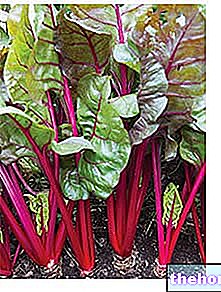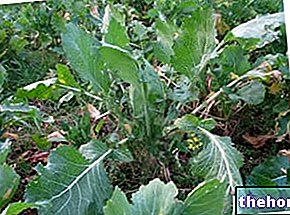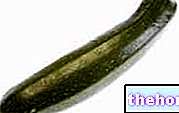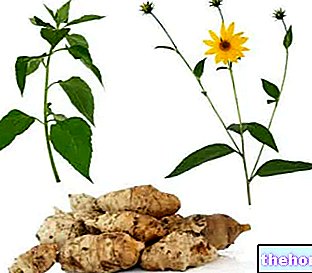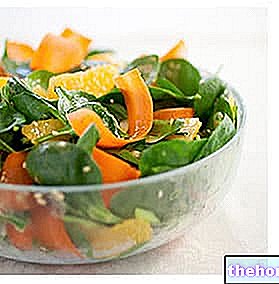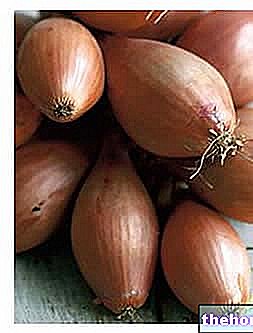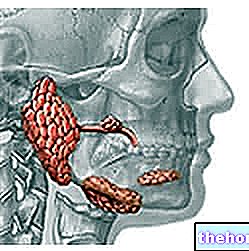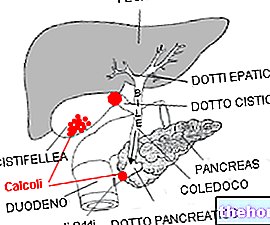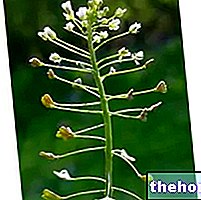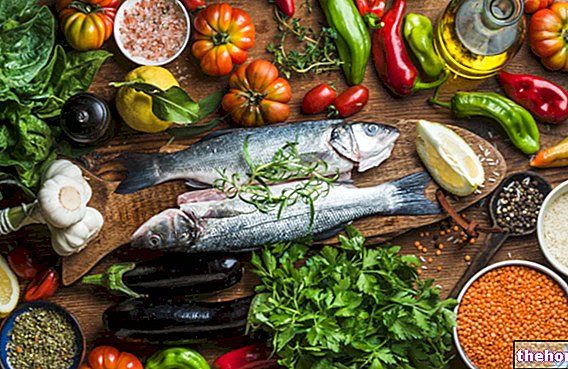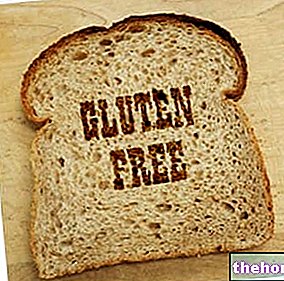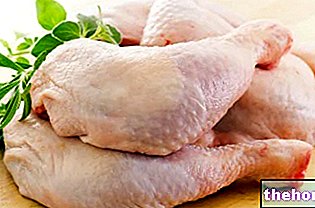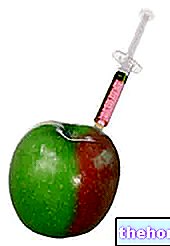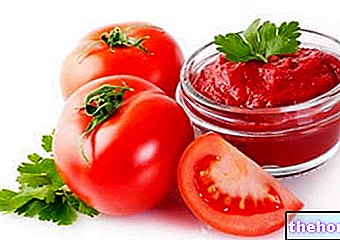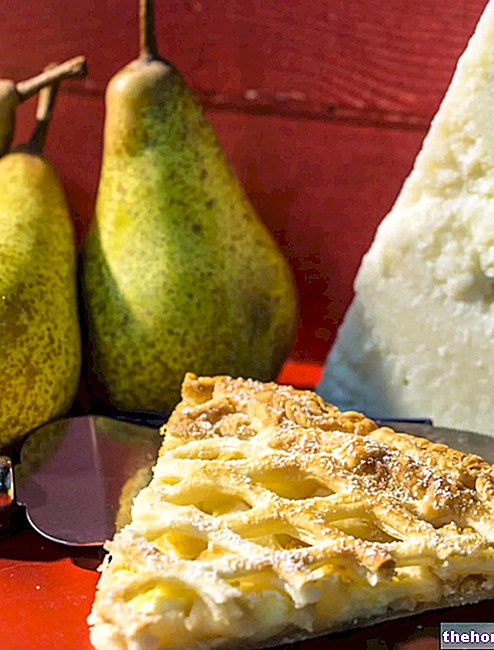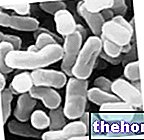The Treviso radicchio - also known as Treviso tardivo - is a red-colored vegetable, with an elongated shape and typically "sprout" - therefore different from the Verona radicchio, which comes in a closed head, despite the tapered line - bitter taste and characteristic flavor.

From a botanical point of view, the Treviso radicchio is a leaf plant belonging to the Asteraceae family (Compositae), Cichorioideae subfamily, Genus Cichorium and species intybus.
The radicchio di Treviso enjoys the recognition of IGP - Protected Geographical Indication. The cultivation area includes several municipalities in the provinces of Treviso, Padua and Venice. The late one has a wider production area than the early one.
Treviso radicchio contains significant quantities of both vitamin A, or rather equivalent retinol (especially carotenoids), and vitamin C (ascorbic acid); therefore it is inserted in both the last fundamental groups of foods - VI and VII. Treviso radicchio also contains a lot of water, dietary fibers, minerals - especially potassium and magnesium - and polyphenols - with particular reference to anthocyanins.
Treviso radicchio can be eaten raw in salads and cooked, especially sautéed, stewed, baked, etc.
rich in vitamin C and vitamin A or RAE.It has a very low calorie intake, as all three energetic macronutrients are present in modest quantities. Carbohydrates tend to be soluble, simple - made up of fructose. The fatty acids should be largely unsaturated and the proteins of low biological value.
Treviso radicchio contains dietary fibers, most of which are soluble. There are plant steroid molecules, called phytosterols, with metabolic action opposite to cholesterol. These plant sterols belong to the broadest set of polyphenols, many others of which - especially anthocyanins - are also well present in Treviso radicchio. It does not contain lactose, gluten and histamine. The purine intake is very low.
Treviso radicchio has an "excellent concentration of vitamin C or ascorbic acid and equivalent retinol (RAE), in particular beta carotene. The average contributions of potassium and magnesium are remarkable.

Edible part
Like all vegetables, Treviso radicchio is not a good source of high biological value proteins. The quantity of essential amino acids and their proportion is in fact very different compared to the human protein model. Fatty acids, although mainly unsaturated, being present in small quantities do not have a significant impact on metabolism.
The abundance of fibers gives Treviso radicchio many beneficial properties for the body. Associated with the right amount of water, they increase the sense of satiety by increasing the volume of the meal in the stomach - a very useful feature in the slimming diet. Especially the soluble ones, they create a gel that modulates nutritional absorption through two mechanisms: they reduce the absorption speed of carbohydrates, by decreasing the insulin glycemic index of the meal, hinder the absorption and reabsorption of fats, especially cholesterol and bile juices - rich in endogenous cholesterol. Treviso radicchio is suitable for dietary therapy against hypercholesterolemia - to which polyphenols contribute - type 2 diabetes mellitus and hypertriglyceridemia. The fibers contained in it improve intestinal transit, preventing / treating constipation and related disorders such as hemorrhoids, anal fissures, the tendency to anal prolapse etc; at the same time, by optimizing the expulsion of toxins and other waste, they act as a protective factor against some cancers of the colon. The fibers also nourish the intestinal flora - acting as a prebiotic - which also contributes to maintaining the health of the colon. intestine.
Treviso radicchio has no contraindications for the diet of lactose intolerant, celiac and histamine intolerant. The low presence of purines makes it suitable for the nutritional regimen against hyperuricemia and gout.
Vitamin C is a powerful antioxidant, as well as a precursor to collagen, an essential element of the immune system, etc. In addition to having an antioxidant function, carotenoids can also be recombined in the organism to form vitamin A, which is necessary for visual function, for cell differentiation, to maintain reproductive function, etc. Polyphenols are the third antioxidant agent of Treviso radicchio. The high concentration of molecules endowed with this function makes this vegetable suitable to fight the oxidative stress of the organism, acting preventively against tumors and hindering the onset of metabolic pathologies.
The richness of water and potassium is considered a preventive aspect of primary arterial hypertension, especially sodium-sensitive - potassium acts metabolically in contrast to sodium and water increases diuresis, favoring the elimination of the unwanted ion. Furthermore, these are two nutritional factors largely eliminated with sweating, greater in hot climates and in sports. Potassium and magnesium are alkalizing minerals which, when deficient in the body, can cause muscle cramps. The nutritional action of the iron and calcium contained in the Treviso radicchio is marginal.
We remind you that, in the pregnant woman's diet, raw Treviso radicchio must be washed carefully and possibly in solution with disinfectants, to reduce the risk of infection or infestation by bacteria or parasites that are dangerous for the success of the pregnancy.
mixed.
Treviso radicchio is very suitable for quick cooking in a pan or for stewing, with oil, salt, lemon / wine / balsamic vinegar and garlic; many enrich it with bacon or speck or lard cut into cubes or strips. It is also used as an ingredient in a wide variety of sauces - flavored bechamel, for example. Many enjoy it grilled or baked.
of Chioggia etc. It differs in early, with wider leaves and a bitter taste, and late, with thinner and more delicate leaves. Other Foods - Vegetables Garlic Agretti Asparagus Basil Beets Borage Broccoli Capers Artichokes Carrots Catalonia Brussels sprouts Cauliflower Cabbage and Savoy cabbage Red cabbage Cucumber Chicory Turnip greens Onion Sauerkraut Watercress Edamame Chives Chanterelles Flour Cassava Flowers Pumpkin Flour Edible Flowers Pumpkin Seasonal Fruits and Vegetables Endive Salads and Salads Strengthening Salad Lettuce Aubergines Vegetables Nettle Pak-Choi Parsnip Potatoes American Potato Peppers Pinzimonio Tomatoes Leeks Parsley Radicchio Turnips Red Turnips Radishes Rocket Shallots Endive Celery Celeriac Seeds Sprouted Spinach Truffle Valianamberi or Jerusalem artichoke laxatives Saffron Pumpkin Zucchini Vegetables - Nutritional properties OTHER VEGETABLE ITEMS Categories Food Alcoholics Meat Cereals and derivatives Sweeteners Sweets Offal Fruit Dried fruit Milk and derivatives Legumes Oils and fats Fish and fishery products Cold cuts S pezie Vegetables Health recipes Appetizers Bread, Pizza and Brioche First courses Second courses Vegetables and Salads Sweets and Desserts Ice creams and sorbets Syrups, liqueurs and grappa Basic preparations ---- In the kitchen with leftovers Carnival recipes Christmas recipes Light diet recipes Women's Day, Mum, Dad Recipes Functional Recipes International Recipes Easter Recipes Recipes for Celiacs Recipes for Diabetics Recipes for Holidays Recipes for Valentine's Day Recipes for Vegetarians Protein Recipes Regional Recipes Vegan Recipes
